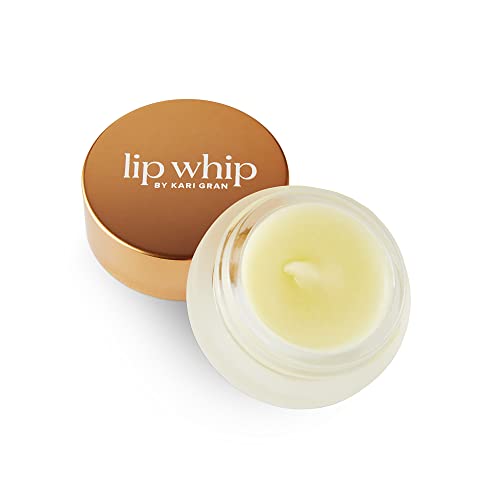
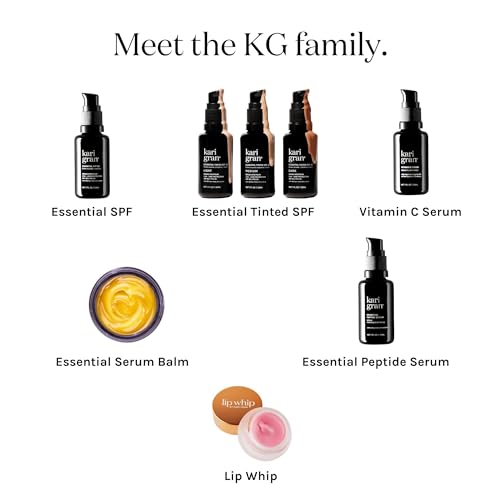
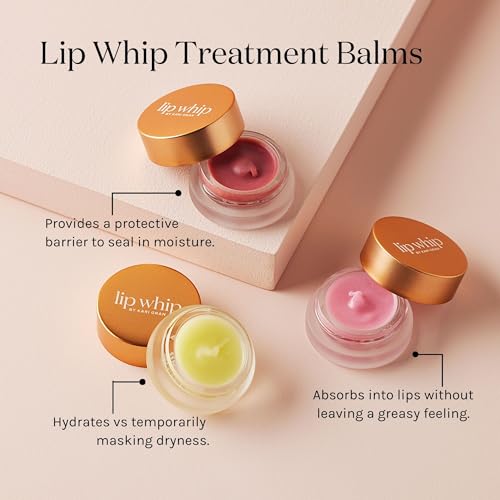
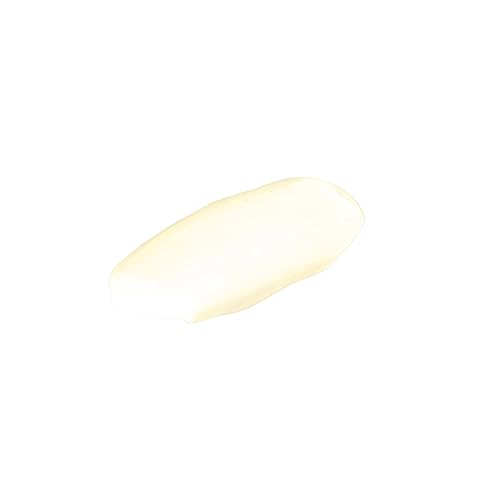
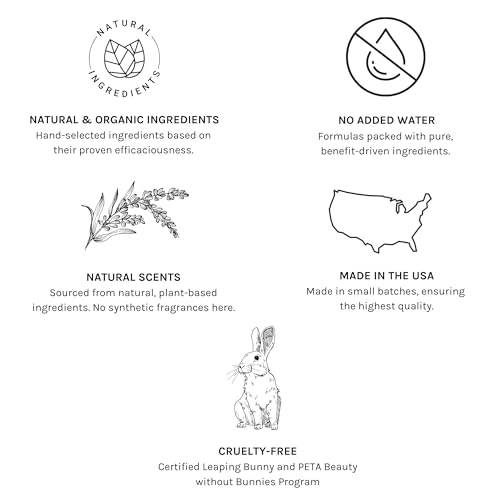
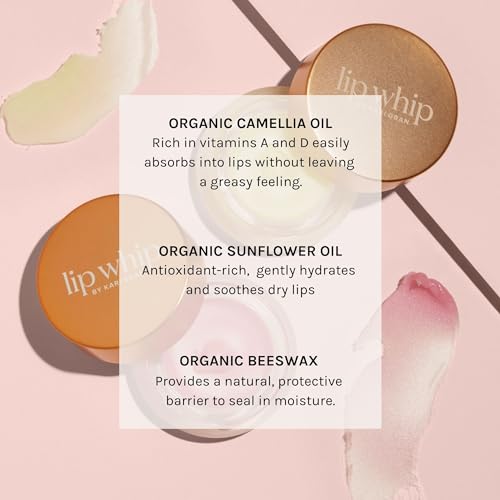

Kari Gran Lip Whip - Hydrating Lip Balm with Organic Oils, Glossy Peppermint Sheen - 0.15oz


Mentha Piperita (Peppermint) Oil
High RiskMentha piperita (peppermint) oil is a volatile oil extracted from the leaves of the peppermint plant, known for its strong aroma and flavor. It is commonly used in cosmetics and personal care products for its cooling properties and fragrance enhancement.
Sustai Insights
Peppermint oil offers functional benefits such as antimicrobial properties and a soothing sensation on the skin. However, it is associated with a high potential for allergies and skin irritation. Regulatory bodies impose certain restrictions on its use due to these concerns. The overall risk level is assessed as high, warranting caution in usage, especially for sensitive populations. Alternatives like spearmint oil may provide similar benefits with potentially lower irritation risks.
Ricinus Communis (Castor) Seed Oil
Medium RiskCastor oil is extracted from the seeds of Ricinus communis and is commonly used in cosmetic and personal care products for its moisturizing and emollient properties. It is known for its ability to enhance skin absorption and provide a protective barrier.
Sustai Insights
Castor oil offers functional benefits as a moisturizer and emollient, enhancing skin absorption and providing a barrier against moisture loss. It is sustainably sourced and biodegradable. However, potential health risks include low levels of irritation and moderate concerns regarding developmental and reproductive toxicity. Environmental risks are low, with no significant pollutant or bioaccumulation concerns reported. Regulatory status shows no current restrictions. Overall, the risk level is assessed as medium, with recommendations for safe usage practices, and potential alternatives include other plant-based oils.
Beeswax
Low RiskBeeswax is the purified wax obtained from the honeycomb of honeybees. It is typically used as a thickening agent, emulsifier, or to provide structure in various cosmetic and personal care products.
Sustai Insights
Beeswax offers functional benefits as a natural emulsifier and thickening agent, contributing to product stability and texture. It is biodegradable and sustainably sourced, aligning with eco-friendly practices. Health risks are low, with minimal concerns regarding carcinogenicity, allergies, or irritation. Environmental risks are also low, with no significant pollutant or bioaccumulation issues. Regulatory bodies impose few restrictions, confirming its safety in use. Safe usage practices should be followed, and alternatives like plant-based waxes may be considered for those seeking vegan options. Overall, the risk level associated with beeswax is low.
Caledula Officinalis Extract
Low RiskCalendula officinalis extract is derived from the flowers of the calendula plant. It is commonly used in cosmetic and personal care products for its soothing and anti-inflammatory properties.
Sustai Insights
Calendula extract offers functional benefits such as skin soothing and anti-inflammatory effects, making it useful in topical formulations. It is generally considered low risk for health concerns, including carcinogenicity, allergies, and reproductive toxicity. Environmental impact is minimal, with no significant pollutant potential noted. It is compliant with regulatory standards and has no known restrictions. Safe usage practices include conducting patch tests to avoid allergic reactions, and alternatives may include other botanical extracts like chamomile. Overall, the ingredient is assessed to have a low risk.
Camellia Oleifera Seed Oil
Low RiskCamellia oleifera seed oil is an extract from the seeds of the Camellia oleifera plant, commonly used in cosmetic formulations for its moisturizing properties and potential skin benefits.
Sustai Insights
Camellia oleifera seed oil offers functional benefits as a moisturizer and emollient, being biodegradable and typically sustainably sourced. Health risks are low, with minimal concerns regarding carcinogenicity, allergenic potential, and reproductive toxicity. Environmental risks are also low, as it does not contribute significantly to pollution or bioaccumulation. Regulatory bodies do not impose restrictions on its use. Overall, the ingredient poses low risk when used appropriately, making it a favorable option in cosmetic products.
Olea Europaea (Olive) Oil
Low RiskOlea europaea (olive) oil is derived from the ripe fruit of the olive tree. It is commonly used in cosmetic formulations primarily as a moisturizer and emollient due to its nourishing properties for the skin. It also serves as a carrier oil for other ingredients in formulations.
Sustai Insights
Olea europaea (olive) oil offers numerous functional benefits, including effective moisturization and enhanced skin absorption properties, making it suitable for various cosmetic applications. It is a biodegradable ingredient, contributing to sustainability when sourced responsibly. Health risks are low, with minimal concerns regarding carcinogenicity, allergenic potential, and developmental toxicity. Environmental risks are also low, with no significant bioaccumulation or pollution potential noted. Regulatory bodies do not impose restrictions on its use. Overall, olive oil presents a low risk profile, making it a favorable choice in cosmetic products.
Persea Gratissima (Avocado) Oil
Low RiskPersea gratissima (avocado) oil is derived from the fruit of the avocado tree. It is commonly used in cosmetic formulations for its moisturizing properties, serving as an emollient that enhances skin hydration and improves product texture.
Sustai Insights
Avocado oil offers functional benefits as a moisturizer and emollient, known for its ability to nourish and hydrate the skin. It is sustainably sourced and biodegradable. Health risks are minimal, with low concerns regarding carcinogenicity, allergies, and reproductive toxicity. Environmental risks are also low, with no significant pollutant or bioaccumulation potential. Regulatory bodies have not issued warnings against its use. Overall, the ingredient is assessed as low risk, making it a safe choice for cosmetic applications.
Tocopherol
Low RiskTocopherols are a class of naturally occurring compounds, primarily known for their role as antioxidants. They are commonly used in cosmetic and skincare products to help stabilize formulations and protect ingredients from oxidative damage.
Sustai Insights
Tocopherols provide functional benefits such as antioxidant protection and skin conditioning. They are generally recognized as safe, with low concerns regarding carcinogenicity, allergies, and reproductive toxicity. However, enhanced skin absorption and potential endocrine disruption are noted. Regulatory bodies have not imposed significant restrictions on tocopherols, categorizing the overall risk as low. Safe usage practices should be observed, and while alternatives exist, tocopherols remain a viable option in formulations.
Helianthus Annuus (Sunflower) Seed Oil
Low RiskHelianthus annuus (sunflower) seed oil is derived from the seeds of the sunflower plant. It serves primarily as an emollient and moisturizer in cosmetic formulations, helping to maintain skin hydration and improve texture.
Sustai Insights
Sunflower seed oil is effective as an emollient, providing moisture and improving skin texture while being biodegradable and sustainably sourced. It poses low health risks, including negligible concerns for carcinogenicity, allergies, or reproductive toxicity. Environmentally, it does not significantly contribute to pollution or bioaccumulation. Regulatory bodies currently do not list any advisories for this ingredient. Overall, it is assessed as low risk, with safe usage practices recommended. Alternatives include oils like jojoba or almond oil for those seeking different properties.
Mentha Piperita (Peppermint) Oil
High RiskMentha piperita (peppermint) oil is a volatile oil extracted from the leaves of the peppermint plant, known for its strong aroma and flavor. It is commonly used in cosmetics and personal care products for its cooling properties and fragrance enhancement.
Sustai Insights
Peppermint oil offers functional benefits such as antimicrobial properties and a soothing sensation on the skin. However, it is associated with a high potential for allergies and skin irritation. Regulatory bodies impose certain restrictions on its use due to these concerns. The overall risk level is assessed as high, warranting caution in usage, especially for sensitive populations. Alternatives like spearmint oil may provide similar benefits with potentially lower irritation risks.
Beeswax
Low RiskBeeswax is the purified wax obtained from the honeycomb of honeybees. It is typically used as a thickening agent, emulsifier, or to provide structure in various cosmetic and personal care products.
Sustai Insights
Beeswax offers functional benefits as a natural emulsifier and thickening agent, contributing to product stability and texture. It is biodegradable and sustainably sourced, aligning with eco-friendly practices. Health risks are low, with minimal concerns regarding carcinogenicity, allergies, or irritation. Environmental risks are also low, with no significant pollutant or bioaccumulation issues. Regulatory bodies impose few restrictions, confirming its safety in use. Safe usage practices should be followed, and alternatives like plant-based waxes may be considered for those seeking vegan options. Overall, the risk level associated with beeswax is low.
Caledula Officinalis Extract
Low RiskCalendula officinalis extract is derived from the flowers of the calendula plant. It is commonly used in cosmetic and personal care products for its soothing and anti-inflammatory properties.
Sustai Insights
Calendula extract offers functional benefits such as skin soothing and anti-inflammatory effects, making it useful in topical formulations. It is generally considered low risk for health concerns, including carcinogenicity, allergies, and reproductive toxicity. Environmental impact is minimal, with no significant pollutant potential noted. It is compliant with regulatory standards and has no known restrictions. Safe usage practices include conducting patch tests to avoid allergic reactions, and alternatives may include other botanical extracts like chamomile. Overall, the ingredient is assessed to have a low risk.
Camellia Oleifera Seed Oil
Low RiskCamellia oleifera seed oil is an extract from the seeds of the Camellia oleifera plant, commonly used in cosmetic formulations for its moisturizing properties and potential skin benefits.
Sustai Insights
Camellia oleifera seed oil offers functional benefits as a moisturizer and emollient, being biodegradable and typically sustainably sourced. Health risks are low, with minimal concerns regarding carcinogenicity, allergenic potential, and reproductive toxicity. Environmental risks are also low, as it does not contribute significantly to pollution or bioaccumulation. Regulatory bodies do not impose restrictions on its use. Overall, the ingredient poses low risk when used appropriately, making it a favorable option in cosmetic products.
Olea Europaea (Olive) Oil
Low RiskOlea europaea (olive) oil is derived from the ripe fruit of the olive tree. It is commonly used in cosmetic formulations primarily as a moisturizer and emollient due to its nourishing properties for the skin. It also serves as a carrier oil for other ingredients in formulations.
Sustai Insights
Olea europaea (olive) oil offers numerous functional benefits, including effective moisturization and enhanced skin absorption properties, making it suitable for various cosmetic applications. It is a biodegradable ingredient, contributing to sustainability when sourced responsibly. Health risks are low, with minimal concerns regarding carcinogenicity, allergenic potential, and developmental toxicity. Environmental risks are also low, with no significant bioaccumulation or pollution potential noted. Regulatory bodies do not impose restrictions on its use. Overall, olive oil presents a low risk profile, making it a favorable choice in cosmetic products.
Persea Gratissima (Avocado) Oil
Low RiskPersea gratissima (avocado) oil is derived from the fruit of the avocado tree. It is commonly used in cosmetic formulations for its moisturizing properties, serving as an emollient that enhances skin hydration and improves product texture.
Sustai Insights
Avocado oil offers functional benefits as a moisturizer and emollient, known for its ability to nourish and hydrate the skin. It is sustainably sourced and biodegradable. Health risks are minimal, with low concerns regarding carcinogenicity, allergies, and reproductive toxicity. Environmental risks are also low, with no significant pollutant or bioaccumulation potential. Regulatory bodies have not issued warnings against its use. Overall, the ingredient is assessed as low risk, making it a safe choice for cosmetic applications.
Ricinus Communis (Castor) Seed Oil
Medium RiskCastor oil is extracted from the seeds of Ricinus communis and is commonly used in cosmetic and personal care products for its moisturizing and emollient properties. It is known for its ability to enhance skin absorption and provide a protective barrier.
Sustai Insights
Castor oil offers functional benefits as a moisturizer and emollient, enhancing skin absorption and providing a barrier against moisture loss. It is sustainably sourced and biodegradable. However, potential health risks include low levels of irritation and moderate concerns regarding developmental and reproductive toxicity. Environmental risks are low, with no significant pollutant or bioaccumulation concerns reported. Regulatory status shows no current restrictions. Overall, the risk level is assessed as medium, with recommendations for safe usage practices, and potential alternatives include other plant-based oils.
Tocopherol
Low RiskTocopherols are a class of naturally occurring compounds, primarily known for their role as antioxidants. They are commonly used in cosmetic and skincare products to help stabilize formulations and protect ingredients from oxidative damage.
Sustai Insights
Tocopherols provide functional benefits such as antioxidant protection and skin conditioning. They are generally recognized as safe, with low concerns regarding carcinogenicity, allergies, and reproductive toxicity. However, enhanced skin absorption and potential endocrine disruption are noted. Regulatory bodies have not imposed significant restrictions on tocopherols, categorizing the overall risk as low. Safe usage practices should be observed, and while alternatives exist, tocopherols remain a viable option in formulations.
Helianthus Annuus (Sunflower) Seed Oil
Low RiskHelianthus annuus (sunflower) seed oil is derived from the seeds of the sunflower plant. It serves primarily as an emollient and moisturizer in cosmetic formulations, helping to maintain skin hydration and improve texture.
Sustai Insights
Sunflower seed oil is effective as an emollient, providing moisture and improving skin texture while being biodegradable and sustainably sourced. It poses low health risks, including negligible concerns for carcinogenicity, allergies, or reproductive toxicity. Environmentally, it does not significantly contribute to pollution or bioaccumulation. Regulatory bodies currently do not list any advisories for this ingredient. Overall, it is assessed as low risk, with safe usage practices recommended. Alternatives include oils like jojoba or almond oil for those seeking different properties.
Discover the luxurious Kari Gran Lip Whip, a moisturizing lip balm crafted with organic oils that hydrate and protect your lips. This non-GMO, cruelty-free formula delivers a rich buttery texture and a glossy sheen, making it the perfect everyday essential for health-conscious consumers.
- Deep Hydration: Infused with organic castor seed and avocado oils, this lip whip offers intense moisture to soothe and nourish dry lips, keeping them soft all day long.
- Natural Protection: The addition of organic beeswax creates a protective barrier, sealing in moisture without the sticky feeling, allowing for comfortable wear anytime.
- Glossy Finish: Enjoy a beautiful, clear hue with a touch of peppermint for a refreshing sensation, perfect for layering under your favorite lip color or wearing alone.
- Versatile Application: Ideal for day or night use, apply generously for ongoing hydration or as an overnight treatment for deep nourishment.
- Ethically Made: Proudly made in Seattle with women-owned values, this lip balm uses sustainable, organic ingredients, ensuring a product that’s good for you and the planet.
Subscribe & Save with Sustai
- Best Price Guarantee: Always enjoy the lowest prices on sustainable home essentials.
- No Surprises: We’ll notify you before shipping. No hidden fees, ever.
- You’re in Charge: Change, pause, or cancel your subscription anytime with ease.
- Eco-Friendly Deliveries: Our grouped shipments mean less packaging and lower emissions.
Join us on a sustainable journey. Special offers for a limited time! Prices and promotions may change.
Recommended Products
Discover the luxurious Kari Gran Lip Whip, a moisturizing lip balm crafted with organic oils that hydrate and protect your lips. This non-GMO, cruelty-free formula delivers a rich buttery texture and a glossy sheen, making it the perfect everyday essential for health-conscious consumers.
- Deep Hydration: Infused with organic castor seed and avocado oils, this lip whip offers intense moisture to soothe and nourish dry lips, keeping them soft all day long.
- Natural Protection: The addition of organic beeswax creates a protective barrier, sealing in moisture without the sticky feeling, allowing for comfortable wear anytime.
- Glossy Finish: Enjoy a beautiful, clear hue with a touch of peppermint for a refreshing sensation, perfect for layering under your favorite lip color or wearing alone.
- Versatile Application: Ideal for day or night use, apply generously for ongoing hydration or as an overnight treatment for deep nourishment.
- Ethically Made: Proudly made in Seattle with women-owned values, this lip balm uses sustainable, organic ingredients, ensuring a product that’s good for you and the planet.

You can have at most 2 Sustainable Steals products in your cart
Customer Reviews
Customers’ View
Customers appreciate the moisturizing effectiveness and quality of Kari Gran's Moisturizing Lip Balm. Many users highlight its rich, buttery texture, noting that it provides deep hydration while leaving a subtle glossy finish. Positive feedback often mentions the balm's pleasant peppermint scent as refreshing without being overpowering. Additionally, customers value its natural, non-GMO, and cruelty-free ingredients, aligning with their health-conscious and eco-friendly preferences. Users find it versatile for both daytime and overnight use, often citing it as a reliable alternative to conventional lip products. Overall, customers find this lip balm to be a dependable choice that supports their commitment to clean beauty and sustainable practices.
AI-generated from the text of customer reviewsThis product is rated 5.0 of 5.0 stars.
It has received 4 reviews.





